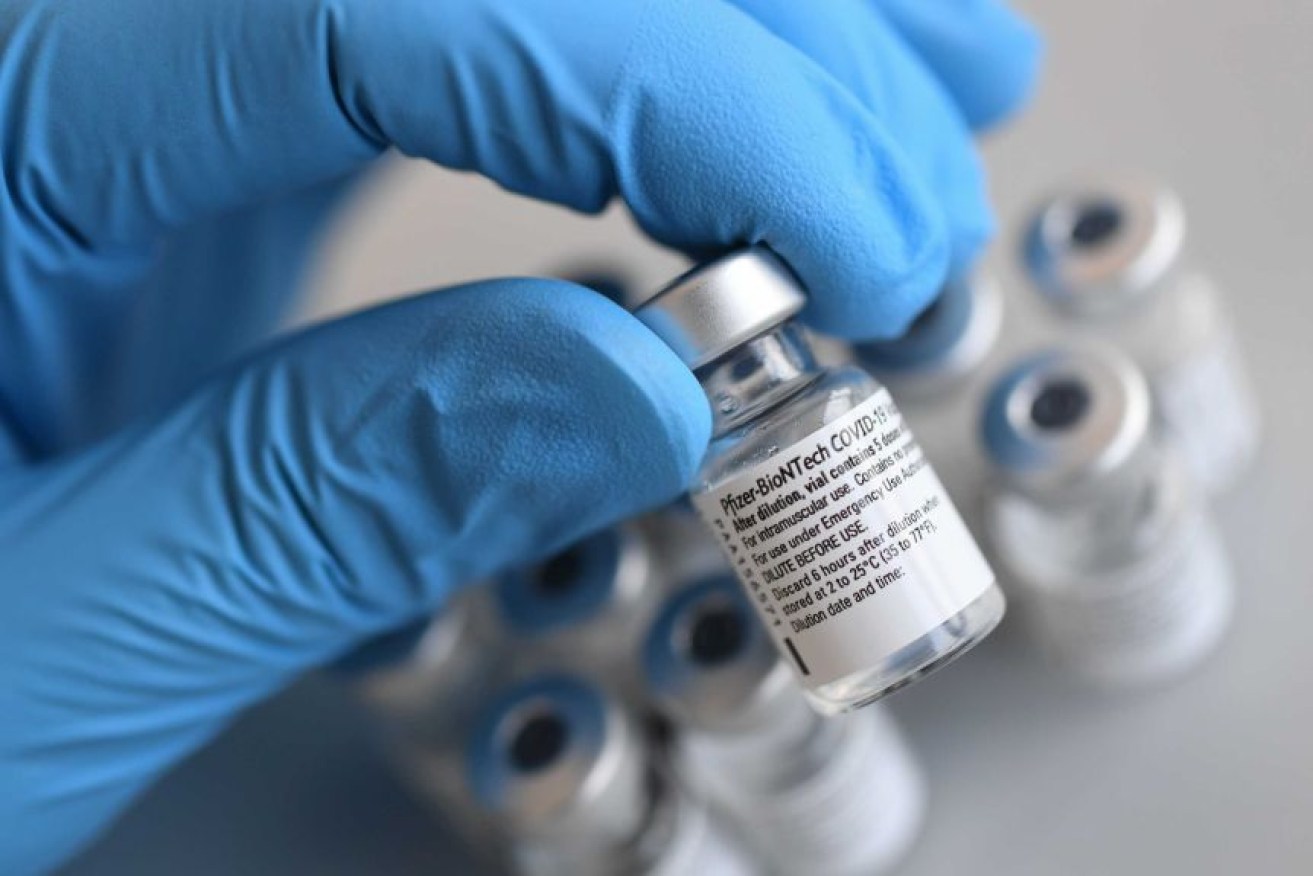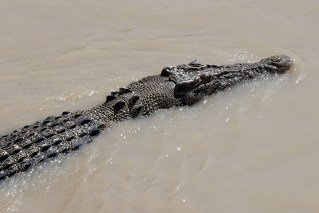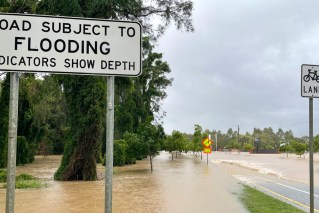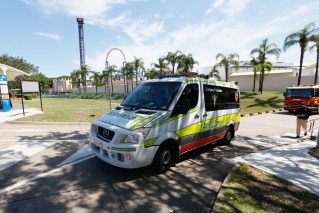Queensland man recovers from clots after vaccine

COVID-19 vaccine makers have been updating their shots to better match the Omicron variant. Photo: Reuters
A Queensland police sergeant is back on duty after recovering from blood clots he developed three days after receiving a Pfizer coronavirus vaccine.
The Therapeutic Goods Administration and health authorities are still investigating whether there’s any link between the man’s condition and the vaccine.
Queensland police said the 40-year-old officer had suffered deep vein thrombosis after knee surgery in 2009, but recovered in less than 12 months.
The officer, who worked patrolling the state’s quarantine hotels, received the COVID-19 vaccine on Sunday.
“Shortly after, symptoms developed which warranted further medical attention,” police said on Friday.
“Federal health authorities are working to determine if there is a link between the sergeant receiving the vaccination and symptoms he experienced shortly after.
“He is now back on duty.”
Deputy Premier Steven Miles said on Wednesday it was too early to say if the incident was linked to the vaccine.
“What people should be very confident in though, is that our medical authorities are determined to investigate any such incident and provide that information and data, nationally and indeed internationally,” he said.
“It will be thoroughly investigated – our TGA is one of the strictest in the world.”
Pfizer said it closely monitored all reports of adverse reactions and shared relevant information with the TGA.
It said there was no evidence that clots were a risk associated with the use of its COVID-19 vaccine.
“Pfizer considers that the benefit-risk profile of Comirnaty in preventing COVID-19 remains positive,” a spokesman said.
People under 50 are being advised to take that vaccine over the AstraZeneca jab amid concerns about rare blood clots.
So far three people have developed clots in Australia after being given the AstraZeneca vaccine.
They include 48-year-old Genene Norris who died in NSW last week.
The TGA said her death was likely linked to her vaccination.
Ms Norris had several chronic health conditions when she received the jab on April 8. She became unwell three or four days later before dying on April 15.
The other two who developed blood clots likely linked to their AstraZeneca jab are a woman in Western Australia and a man in Victoria, both in their 40s.
At least 14 people in Australia have had allergic reactions to the Pfizer vaccine, but none have developed blood clots.
Johnson & Johnson also halted the rollout of its vaccine in Europe last week after US officials recommended a pause due to six detected cases of very rare blood clots.
-AAP








